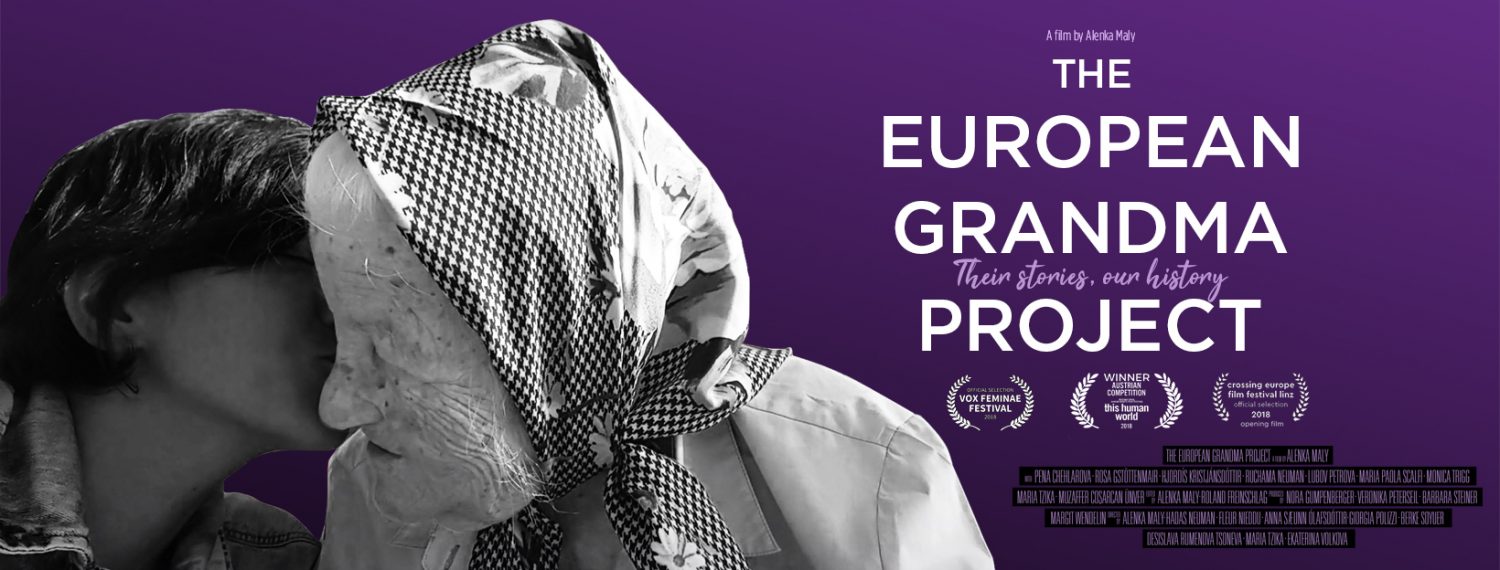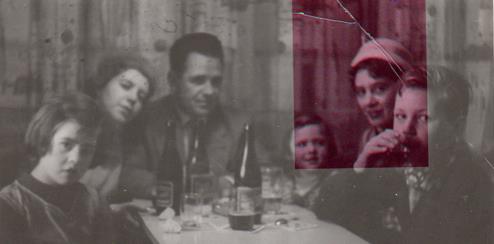Alenka Maly from Linz, Upper Austria, is the founder of the European Grandma project, which explores the portraits of ten European grandmothers as told by their granddaughters. Here she tells the story of her Oma.
“My Grandmother Rosa was born in the Mühlviertel (northern region of Upper Austria); she is now 91 years old. The stories she tells mirror the societal and political developments that took place in Austria from 1924 to present day.
She talks about the difficult financial situation her mother had to deal with as she tried to raise three daughters alone during the worldwide economic crisis of the 1920s after the children’s father died in an accident.
The village school teacher knew and understood the family’s situation, and employed the then 10-year-old Rosa to help with the chores in his home. There, she learned table manners, how to cook, and that reading books was a form of escape. She used the money she earned in the job to support her family.
When she had to leave home at the age of 15, she accepted a job as a housemaid with a merchant family. She worked from Monday until Saturday from 6 am to 10 pm; on Sunday afternoon she had 6 hours of free time. The employer, a member of the NSDAP (National Socialist German Workers Party), regularly allowed her to take part in events held by the ‘League of German Girls’ (BDM), which offered her a welcome distraction.
News about political events did not reach her at that time.
Whilst still a teenager, she found a job at Attersee (a lake in the south of Upper Austria) in a recreation home for employees of a company called Mayreder. There, she was able to further nurture her growing culinary skills – and she also began to notice the attention she was receiving from the opposite sex.
During the war, she cooked for SS officers in St. Georgen an der Gusen at the subcamp of the Mauthausen concentration camp. Many people claim that they did not know about the industrial killing of people that was taking place in the camps, but she thinks that this is a lie.
She herself tried several times to give food to starving prisoners as they marched by but was caught, admonished and threatened.
Gusen marks a turning point in Rosa’s story: her experiences there left a deep impression, and resulted in her taking a profoundly anti-fascist stance, one which she endeavoured to pass on to her children and grandchildren.
She met the father of her first child at the Gusen camp. He was from Czechoslovakia and worked as a helper in the kitchen. Their son was conceived out of wedlock on New Year’s Eve 1944.
After the war, the father of her child went to live in Czechoslovakia. Their love was not strong enough to overcome the Iron Curtain, she says.
“I was very ashamed,” she says. “To be a woman with a child and no husband was taboo at that time.”
Later she met and married my grandfather, Franz, who had been drafted as a paratrooper at the age of 17 and had returned from war a deeply traumatised man.
Sometimes he wanted to speak about the war, but his children would not let him. They did not want to hear his stories. I would like to ask my grandmother more about why she thinks they refused to talk about the war.
“At first it wasn’t easy,” she says, she spent a lot of time by herself sewing and experimenting in the kitchen. ‘Living well on little’ and ‘saving’ are two disciplines that she has learned to master and that she still practices with great enthusiasm today.
In the 1950s times changed for the better and by the 1960s the ‘economic miracle’ had reached my grandmother and her family (which had grown to three children by then); the salary Franz earned at steel company VOEST was enough to pay for camping holidays by the Adriatic for the whole family.
Franz was a passionate photographer; his slides, which date from the early 1960s, still exist.
After all three children had left home, Rosa accepted a part-time job.
She has always been a keen reader: from Austin to Zola, no day has passed without a book to keep her company. Romantic novels are not really her thing these days; she says she is too old for that now. Since her husband passed away 15 years ago, she has been mentally preparing herself for her own passing, while keeping up daily with the news on television and raging with youthful fervour against injustice, dictatorships and war.”

